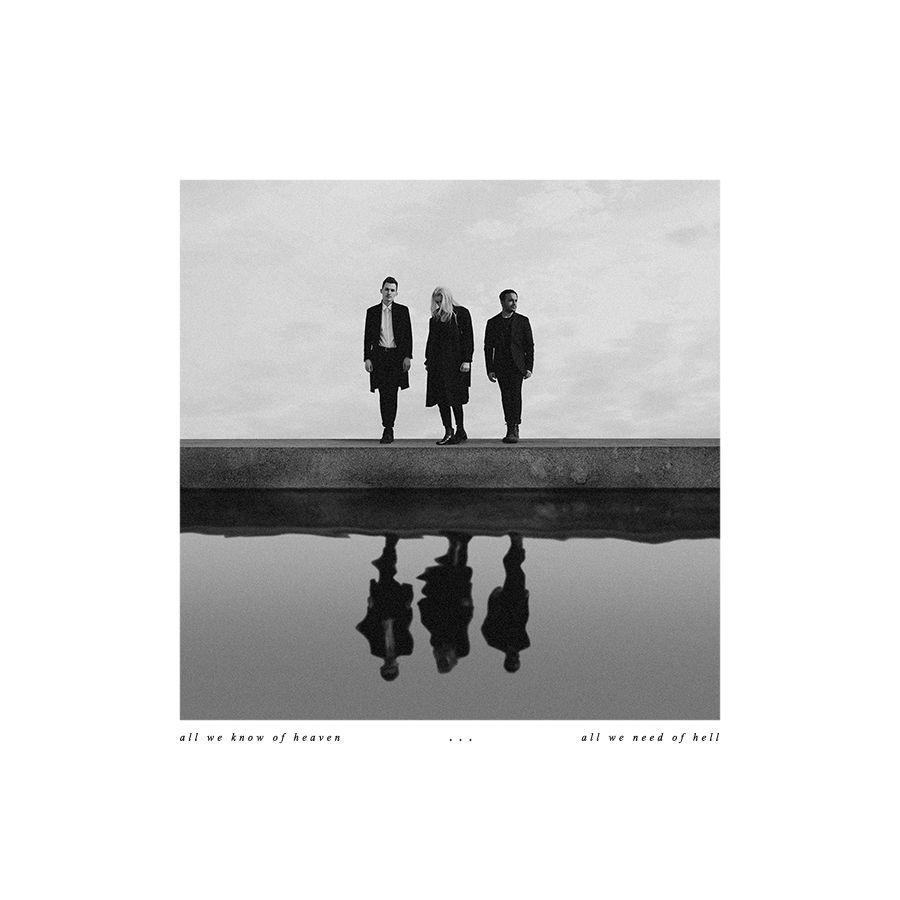STARS: 4.5/5
Alternative rock band PVRIS, pronounced like the French city, released its follow-up to the group’s 2014 debut album Aug. 25, and it was well worth the wait.
PVRIS’s first studio album “White Noise” was impressive, and its popularity in the alternative scene launched the band into stardom. In just two years, PVRIS released an album, had a headlining tour and performed at Lollapalooza. However, its sophomore effort “All We Know of Heaven, All We Need of Hell” delves into more experimental beats and open lyrics.
On the album, 23-year-old frontwoman Lynn Gunn sings with a maturity beyond her years. Guitarist Alex Babinski and bassist Brian MacDonald also provide exceptional musical backing on the sophomore effort.
The title of the album originates from a poem by Emily Dickinson, fitting the raw and haunting emotion put forth on the album. Gunn said in an interview with hmv.com she heard of the poem on a TED talk on love and loss and decided it fit with the band’s album.
Beginning with the first track “Heaven” the band kicks off its more mature sound with strong vocals from Gunn and a heavy synth beat reminiscent of Florence + the Machine. The coupling of the heavy kick beat and powerful guitar riff sets the tone for the rest of the album.
The next few tracks keep true to the style of the new rock-synth blend. The third and fourth tracks, “Anyone Else” and “What’s Wrong,” respectively, showcase the growth in the group’s songwriting.
The repetition of the phrase “I don’t belong to anyone else,” throughout “Anyone Else” is captivating and almost haunting. It expresses the obsessive nature that one goes through when they’re in love.
The tactic of repetition is used again in “What’s Wrong” with the phrase “Don’t need a metaphor for you to know I’m miserable,” and “No, I never sold my soul, if I ever do throw my bones to the wolves.” In both cases, the repetition creates an anthem that begs to be played live.
Another standout track is “Winter,” the seventh song on the 10-track album. Its imagery describes a vividly cold winter, talking about a relationship that Gunn sings as “physical touch, not necessarily love.” The clever use of evocative winter-themed imagery to convey this idea is relatable to anyone who has experienced a time where a dying relationship is their reality.
Transparency is the key to this album. The band shows growth in the way their music is constructed and they’ve stayed true to their original style with honest lyricism, but have showed a more vulnerable edge. The listener can feel the emotion behind the words and can connect in a stronger way than with earlier projects.
Fans should be pleased with the new album and can find something familiar in the newness. Growth inspires growth and “All We Know of Heaven, All We Need of Hell” inspires introspection, alongside a solid beat and tunes the listener can rock out to.
Listen to “All We Know of Heaven, All We Need of Hell” below.








